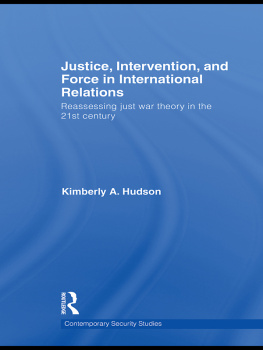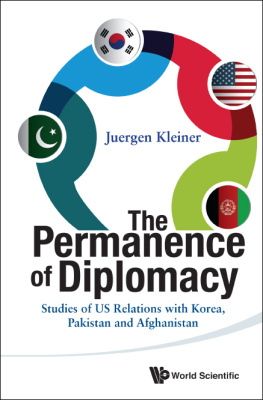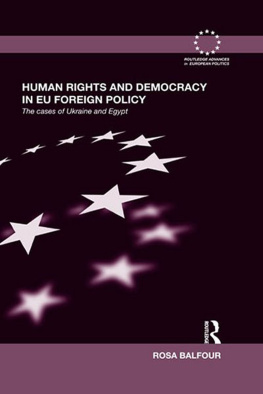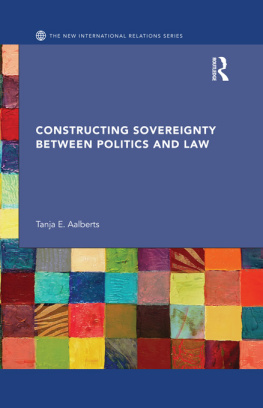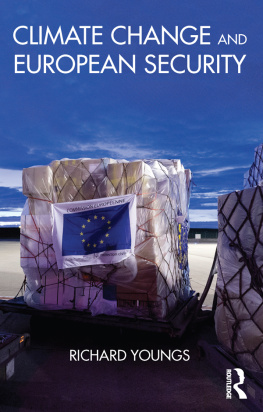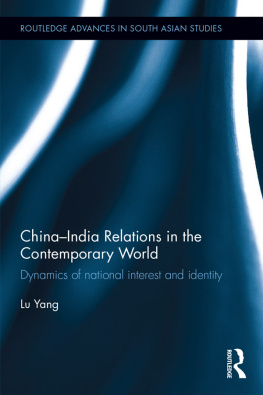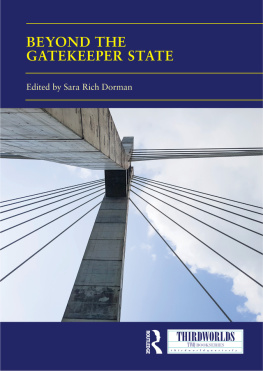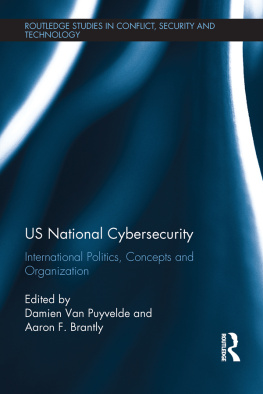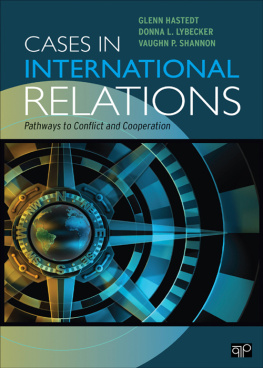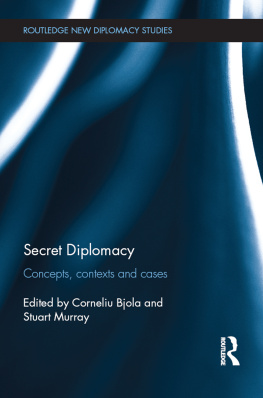T his edition of the book is once again dedicated to my good friend and colleague, the late D. Eugene Brown. Gene and I met in 1989 at the U.S. Army War College, where we both served as visiting professors and shared an office for two years before he returned to his permanent home at Lebanon Valley College in Annville, Pennsylvania, and I returned to the University of Alabama in Tuscaloosa. In the ensuing decade, we were collaborators on several book projects; Cases in International Relations, which was mostly Genes idea, was to be a continuation, even culmination, of those efforts. Unfortunately, Gene left us before the original project was complete. His shadow remains, I hope with a smile on his face.
I have also received generous and very helpful assistance from the team at Rowman & Littlefield. In particular, I would like to thank two members of the Rowman & Littlefield team. My editors, Susan McEachern and Michael Kerns, obtained the reversion of rights to me for the seventh edition and encouraged me throughout the writing process. Alden Perkins did her usual professional job turning the manuscript into a book, our fourth project together. Special thanks go to Elizabeth Von Buhr, who cheerfully and efficiently came to my aid when my lack of knowledge and empathy with the dynamics of electronic infernal machines left me in a bewildered panic (a recurrent burden on her). Thanks for everything, guys!
Lastly, I would like to thank the reviewers of the ninth edition: Dan Caldwell (Pepperdine University) and Alfredo Carnevali (Montclair State University).
D ONALD M. S NOW
P ROFESSOR E MERITUS
U NIVERSITY OF A LABAMA
S overeigntysupreme authorityhas been the most central concept and operational principle of the international order since the Peace of Westphalia ended the Thirty Years War in 1648. Since then, sovereignty has been defined territorially as possessed by states. This has meant that state sovereignty is the principle on which world political order is grounded. Within sovereign states, there can be no authority greater than that of the state. In principle, it is absolute in scope. In practice there are infringements on the total control of the state. Sovereignty is a controversial operational concept that is used to justify armed violence and can be a shield behind which atrocity is sometimes committed. Established sovereignty does, however, endow its possessor with international legitimacy, making it a valued commodity among possessing political actors.
Sovereignty is pervasive, is jealously guarded by its state possessors, and is a fundamental pillar of world politics. Some states are more obsessed with protecting their sovereignty than others, but it is important to all states. The most powerful states have the most to lose if others can infringe on their sovereignty, and they tend to be the strongest champions of state sovereignty. China and the United States are the purest examples of this dynamic in contemporary international politics.
The pervasiveness of sovereignty extends to virtually all aspects of international interactions, and it is so important that a systematic examination of international relations must begin by understanding the concept and how it intrudes on so many of the dealings of international actors. One area where claims of sovereignty are most foundational occurs when multiple states claim jurisdiction over the same territory and where the claimants are unwilling to relax or compromise their claims, resulting in especially bitter conflict that can, at worst, devolve to armed conflict between them. In contemporary international relations, an example is the contest between Israel and the Palestinians over the West Bank of the Jordan River, a part of sovereign Jordan until 1967, when it was occupied by Israel in the Six-Day War. The Israelis and the Palestinians have each claimed sovereign primacy ever since.
Principle: The Concept of Sovereignty
Any discussion of the underlying philosophy, structure, or operation of international relations begins with the concept of sovereignty. Defined as supreme authority, it is the operational base of both international and domestic political life, although with quite opposite effects on the two realms. Ever since it emerged as the bedrock organizational principle of world politics in 1648, it is, and has always been, a somewhat controversial foundation for world affairs. Controversy has surrounded matters such as the location of sovereignty (who has it?) and the extent of power that it conveys to its possessors (what can the sovereign doand not do?), and concepts have changed over time. Disagreements about sovereignty are prominent parts of some debates about the evolving international order, and the assault on its basic function is part of international dialogue.
Sovereignty emerged as a defining concept at a time when modern political states did not exist except in limited places such as France and England. During this period, questions of political authority still revolved around whether people owed their ultimate loyalty and even existence to sectarian authority represented most prominently by the Catholic Church or to secular monarchs in the locales where they resided. One of the most important elements of the Peace of Westphalia (the collective name given to the series of treaties that ended the Thirty Years War) was to wrest political control from the church and to transfer that power to secular authorities. This transfer was accompanied by the effective installation of sovereignty as the basis of relations among secular political communities. A primary outcome of this marriage was to associate sovereignty with territorial political jurisdictions. Because those territories were essentially all ruled by absolute monarchs, the conjunction effectively created the precedent that the power of the sovereign was absolute. This association is symbolized by the fact that the monarchs of the time were also known as sovereigns.
Sovereignty has changed over time. Reflecting the political period in which it became the bellwether concept of an evolving secular state-based system, sovereignty began as a principle that legitimized and promoted authoritarian rule. That principle was challenged with the rise of democratic thought, suggesting that sovereignty was a characteristic not only of the ruler but the ruled as well. From this challenge arose the modern notion of popular sovereignty.
Origins and Evolution
Understanding how and why sovereignty came to be the major organizing principle of international relations begins with an enigma. The heart of sovereignty is territorial supremacywhoever has sovereignty has ultimate authority over the physical territory where it is claimed and enforced. This means that in the domestic affairs of sovereign entities, sovereignty provides the basis for political order by endowing its possessors with the ability to develop and enforce rules and laws that produce some form of political system. It does not predetermine who within the jurisdiction has sovereignty or the extent to which it can be exercised. In domestic affairs, it is the basis for order.
The impact of sovereignty on the relations between sovereign territories (in modern terms, the worlds states or countries) is quite the opposite. The supreme authority that sovereignty creates means that there can be no other entity that can claim or exercise any form of authority over another state, and this principle implies states cannot interfere in one anothers affairs. Although this principle was never taken quite literally in practice, the result was that international relations (the interactions between states) was effectively a state of anarchy (the absence of government) where no state could legally be impelled to do things it did not want or that might offend others within their sovereign domains. The only recourse that a political authority aggrieved by the actions of another sovereign state was through


